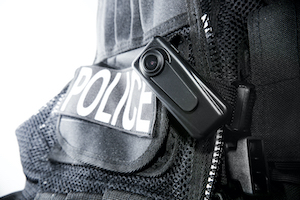Police Body-Worn Cameras: What Prosecutors Need to Know

Author(s): Kristine Hamann, PCE
As police departments across the United States embrace the use of police body-worn cameras (“BWCs”), it is imperative that prosecutors be involved in the uptake process as early as possible. The cameras will inevitably capture a great deal of evidentiary material that will be used in every type of criminal prosecution. Thus, systems and policies must be developed to ensure that this evidence is properly captured and delivered to the prosecutor in a timely and usable way.
This can be a daunting task, complicated by the fact that in most jurisdictions, there are many police departments that send their cases to one prosecutor. Without coordination, the departments may purchase different technologies, implement different policies, and store the data in different locations. In some instances, the prosecutor may even be unaware that a police department has purchased BWCs. To start, the prosecutor should reach out to their police department(s) to determine whether they are planning to purchase BWCs. If the police department already has a program underway, it will be advantageous for the prosecutor to become involved in developing the program and in coordinating with other police departments in their jurisdiction.
Categories
- Alternatives to Sentencing/Post-Filing Diversion
- Best Practices Committee
- Community Collaboration
- Conviction Review
- Court Collaboration
- Data
- Did you Know?
- Did You Know? Archive
- Ethics
- Family Violence Crime Strategies
- Felony Crime Strategies
- General Crime Strategies
- Gun Crime Strategies
- Implicit Bias/Racial and Ethnic Inequity
- Innovations Blog
- IPS Grant
- Juvenile Strategies
- Low-Level Crime Strategies
- Narcotics Crime Strategies
- Office-Wide Reform Strategies
- PCE Publications
- Pre-Filing Diversion
- Procedural Reform/Bail/Sealing
- Re-entry programs
- Recruitment and Retention
- Sex Crime/Human Trafficking Strategies
- Victim Services and Assistance Programs
- Video Blog
- Violence Investigation/Reduction Strategies
- Wellness
